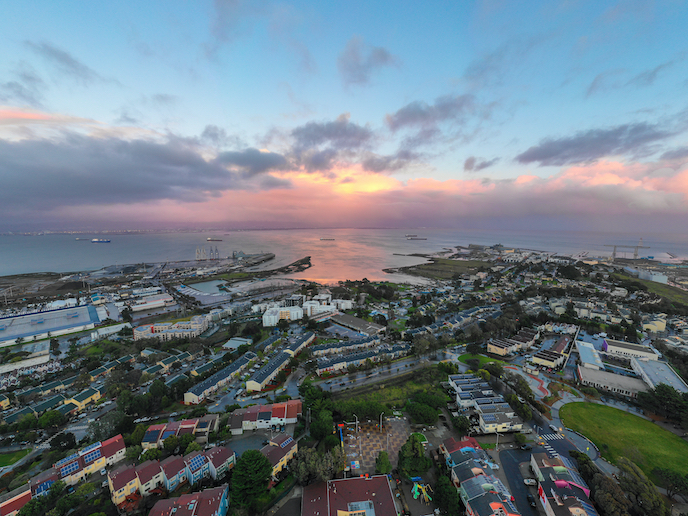Investigating resistance to redevelopment plans in a San Francisco neighbourhood
Rapid urbanisation and globalisation are just two of the more pronounced trends that have exacerbated social inequality around the world. In cities their hallmarks include racial segregation, gentrification and deprivation. To explore the impact of urban redevelopment planning on communities, the Marie Skłodowska-Curie Actions(opens in new window) supported Justhood project conducted fieldwork in a San Francisco neighbourhood. The research highlighted the historically contingent and geographically specific aspects of urban injustice, which if not accounted for within redevelopment plans, risks failure. “I witnessed an almost continuous struggle between the community and the authorities who championed redevelopment efforts despite community misgivings, some of which, for example around safety, were well founded,” says principal investigator Reza Shirazi from Oxford Brookes University(opens in new window), the project host.
Exploring the ‘just city’
To tackle growing urban injustice, politicians, activists and academics have proposed a wide range of ideas, plans and programmes. For example, some redevelopment and urban planning schemes in Europe and North America are inspired by the notion of ‘just cities’(opens in new window). These have yielded mixed results, with some mitigating and some exacerbating injustice. “Reasons for failure include an overemphasis on physical redevelopment with insufficient consideration of social dynamics, alongside an over-reliance on the market to deliver regeneration without considering how benefits might be distributed,” adds Shirazi. The Justhood project conducted research in San Francisco’s Bayview-Hunters Point(opens in new window) neighbourhood, the site of a decommissioned naval shipyard and a location of intensive redevelopment. Here, the Candlestick Point-Hunters Point Redevelopment Project(opens in new window) aims to build more than 12 000 residential units and several million square feet of office, commercial and recreation space. As this area has historically suffered from a variety of disparities, officials claim this redevelopment will improve opportunities and social equality – a claim challenged by residents and activists. “Around 2017 some of the safety aspects of the remediation work, such as management of contaminated soil, were questioned, sparking intense debates. Exploring the arguments of both sides highlighted the importance of the deep historical roots of neighbourhood deprivation and distrust,” explains Shirazi. Around 1 290 publicly available official documents – including redevelopment plans and townhall meeting minutes – were reviewed alongside over 670 local newspaper and TV accounts of key events covering a 30-year period. Shirazi also attended and videorecorded over 30 events including community meetings, town hall meetings, protests, and conducted 54 interviews, with scholars, local authorities, activists and residents. Informed by Justhood’s 2 years of fieldwork and inspired by digital ethnography, Shirazi produced a documentary film entitled ‘Never Surrender’(opens in new window) which has been screened at several events around the world. “The film not only portrays the lives of community members but also provides a platform for alternative narratives to the official ones,” he notes. “I was surprised and impressed by how the community organised effective and consistent grassroots resistance over a long period of time.”
Fair urban policies
Environmental justice and community engagement are key elements of EU social investment policies. Justhood provides decision makers with first-hand evidence of what happens when community voices are overlooked. “Urban polices should always be reviewed to ensure fairness, inclusivity and more representation of the disadvantaged and powerless,” concludes Shirazi. As well as working on journal and newspaper articles, Shirazi continues to organise film screenings and is planning to publish a monograph.







